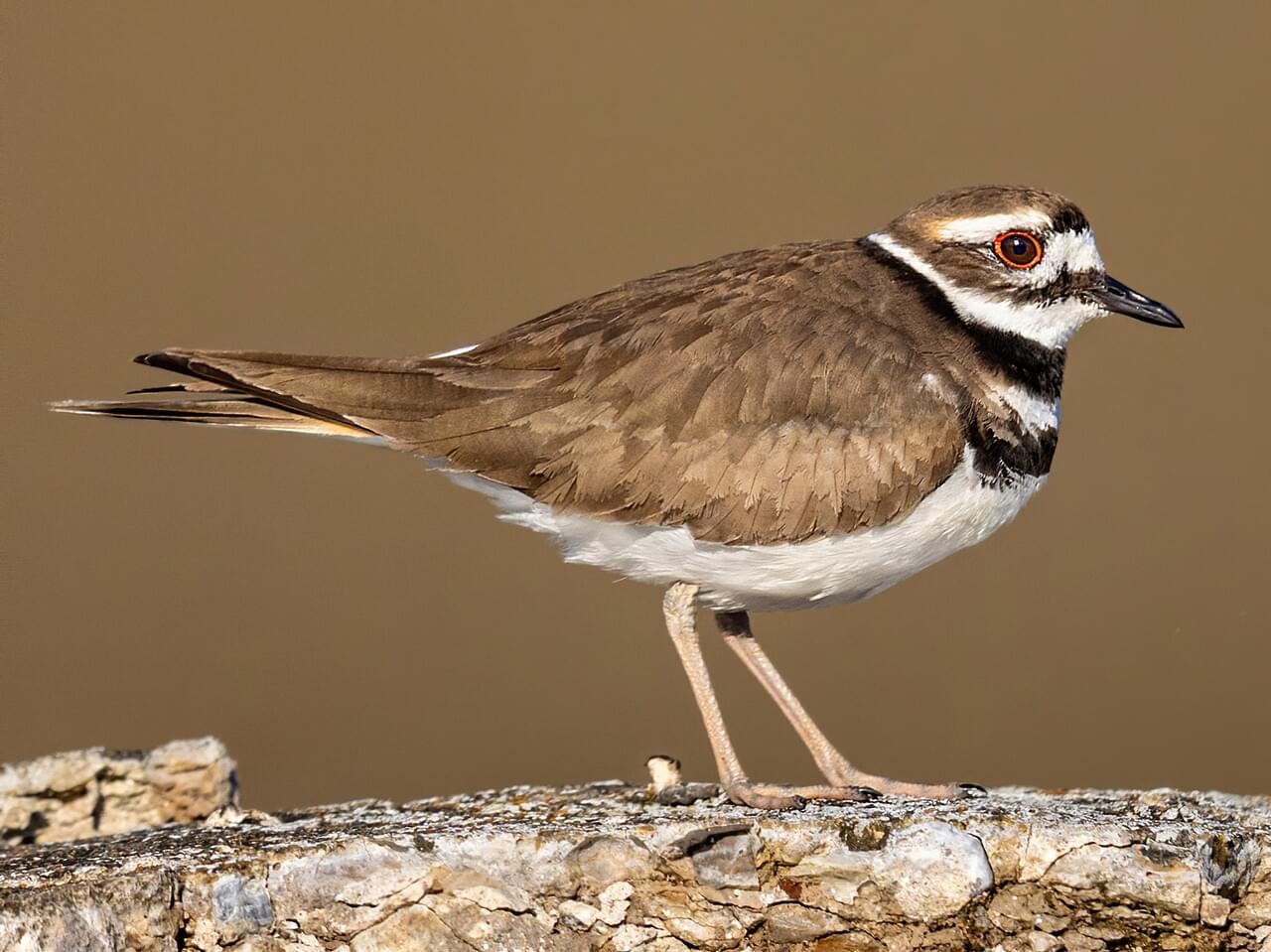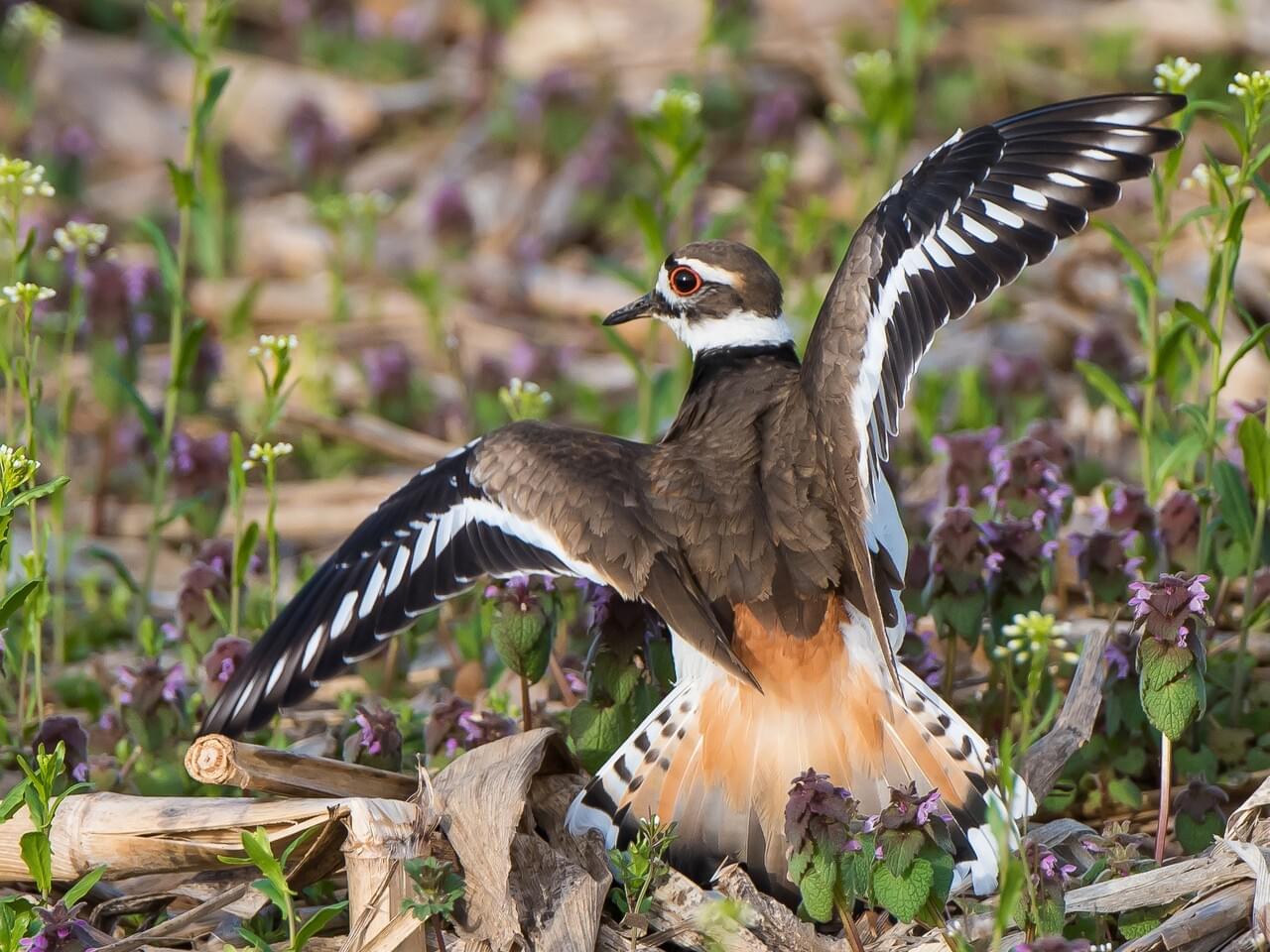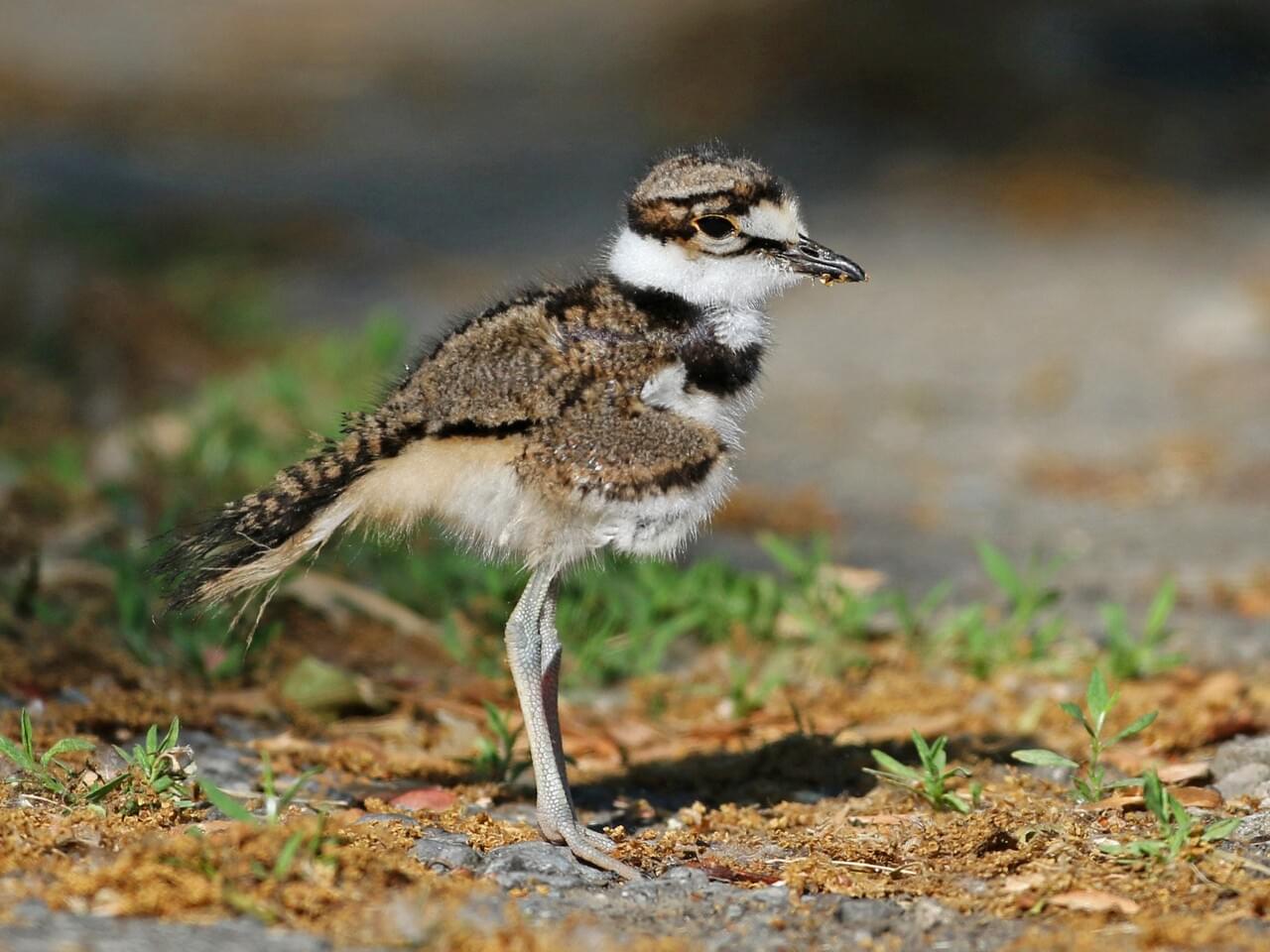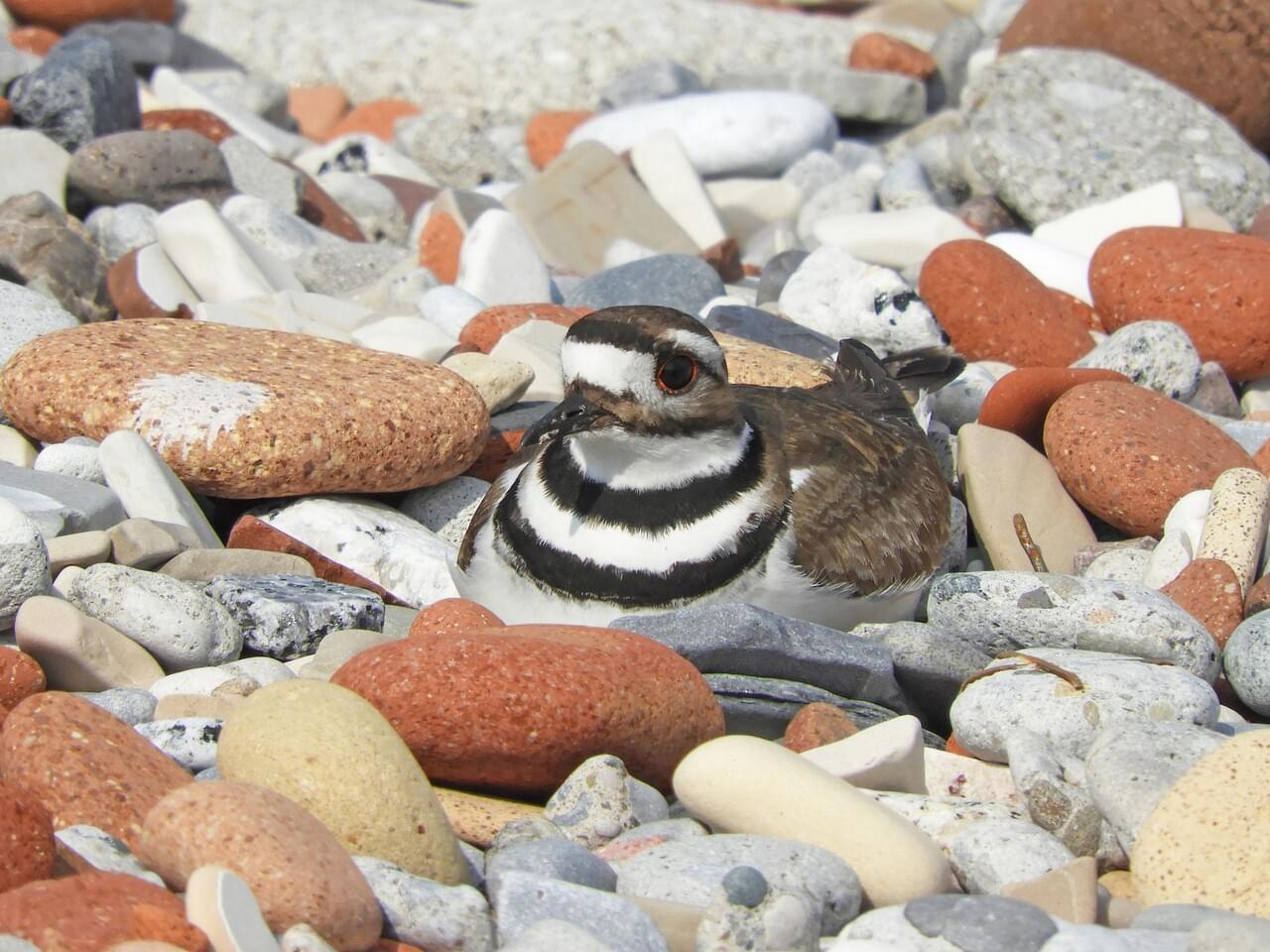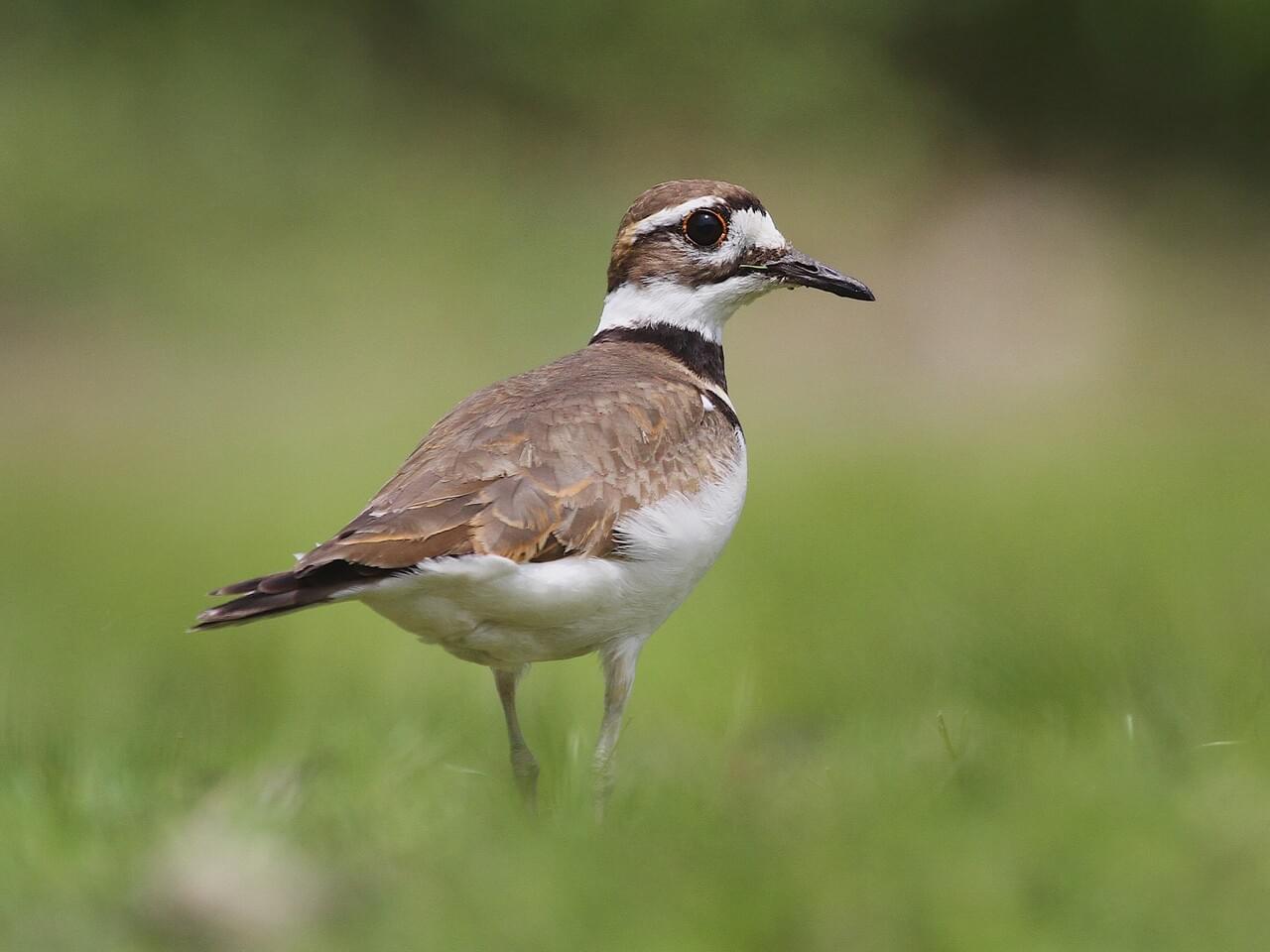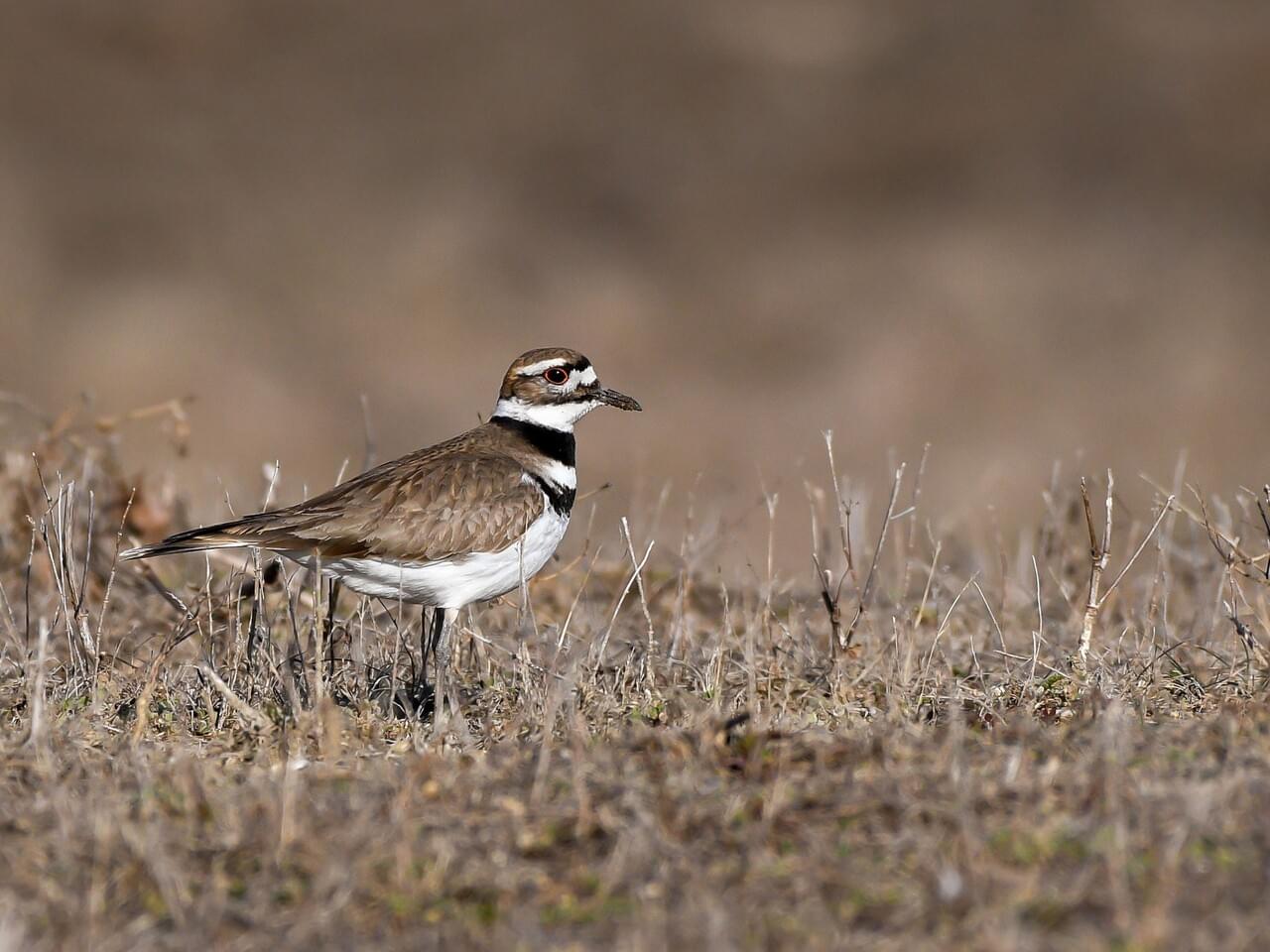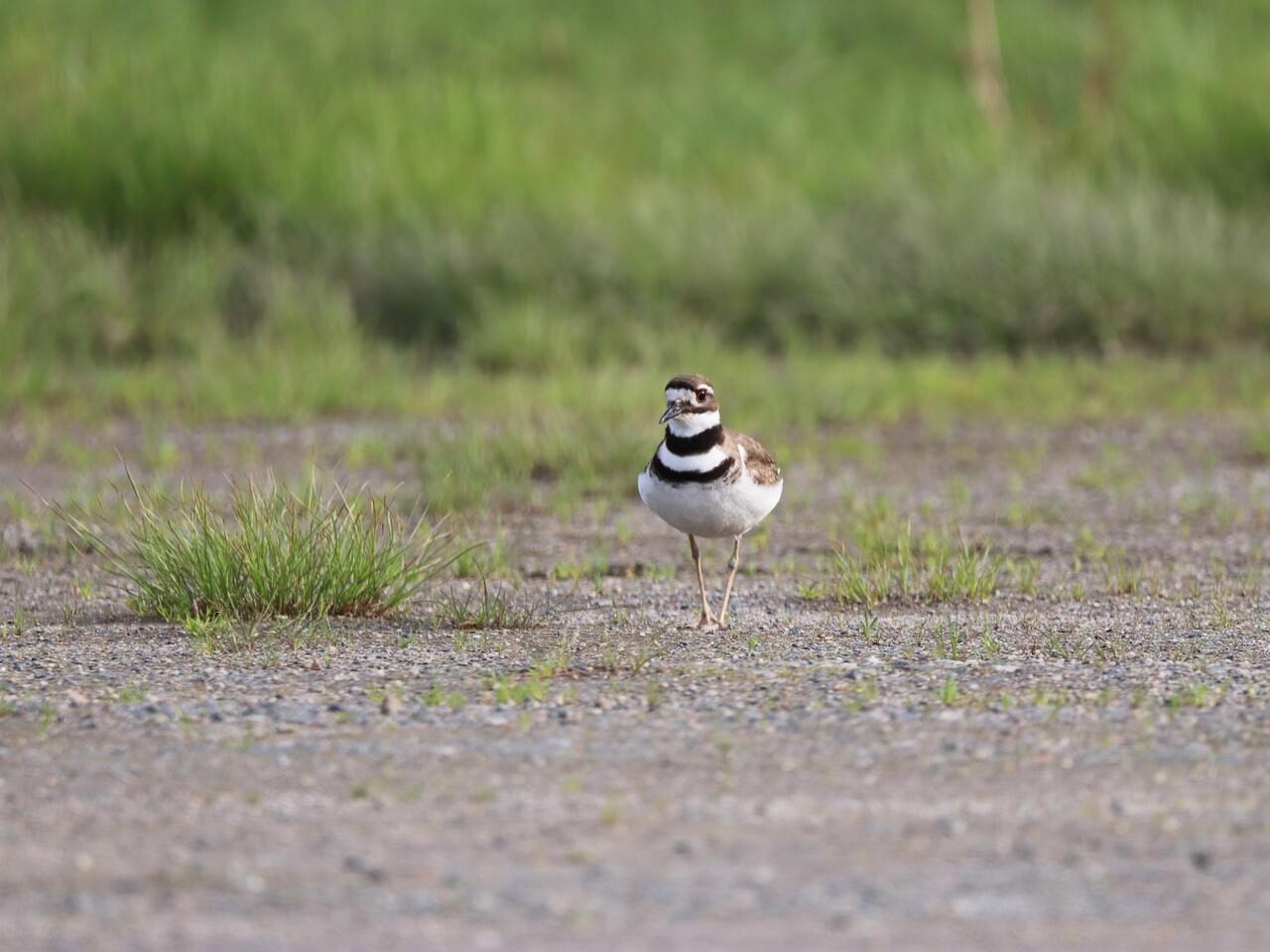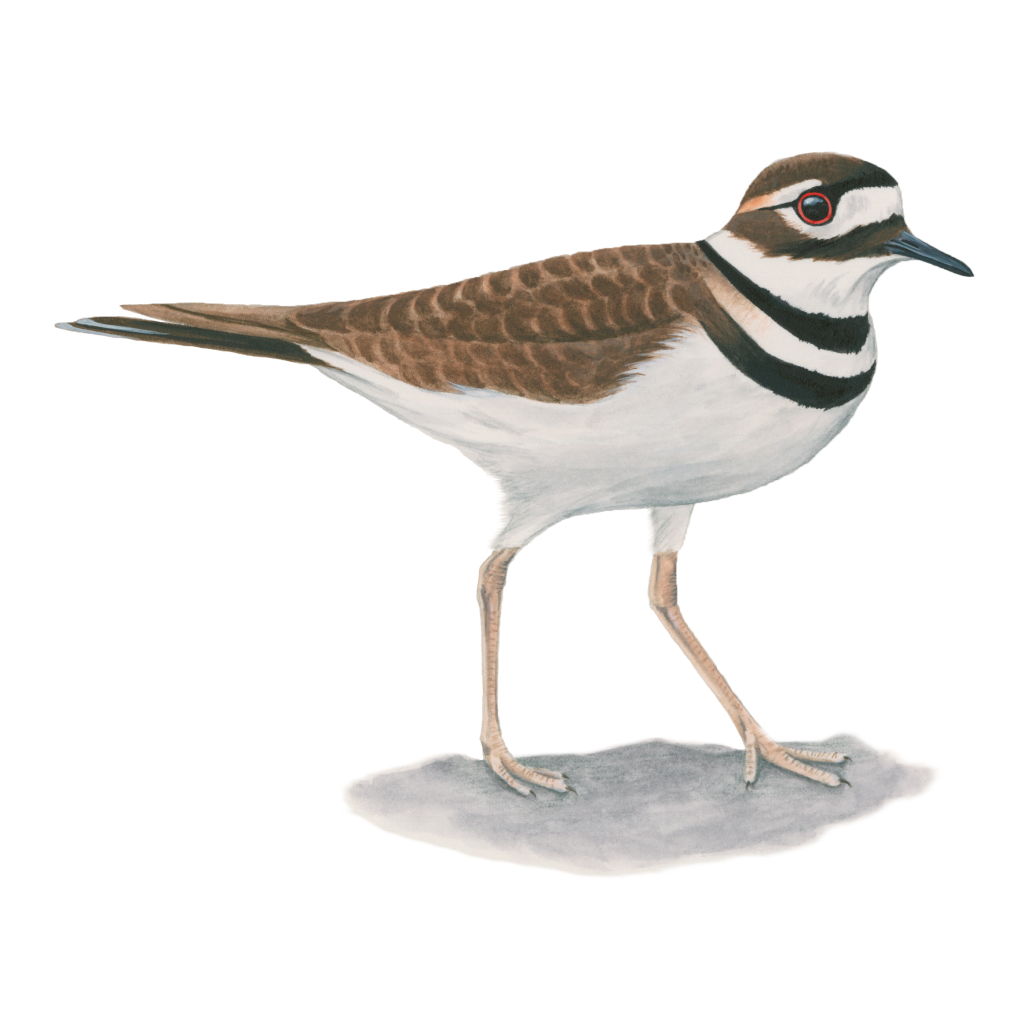 Photo ©
Liz Clayton Fuller
Photo ©
Liz Clayton Fuller
Killdeer
Main Focal Species
A shorebird you can see without going to the beach, Killdeer are graceful plovers common to lawns, golf courses, athletic fields, and parking lots. These tawny birds run across the ground in spurts, stopping with a jolt every so often to check their progress, or to see if they’ve startled up any insect prey. Their voice, a far-carrying, excited kill-deer, is a common sound even after dark, often given in flight as the bird circles overhead on slender wings.
Range
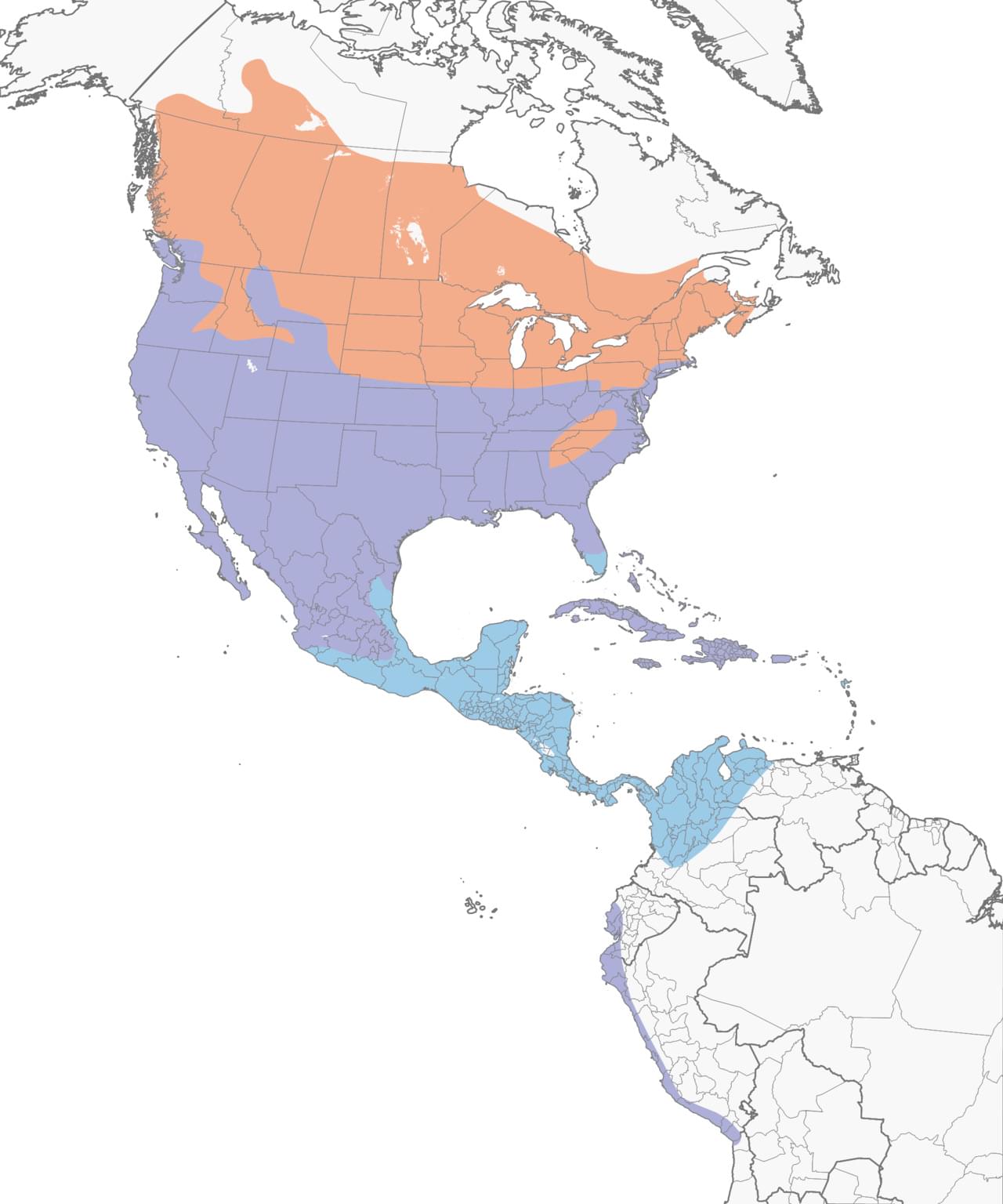
Habitat
Killdeer inhabit open areas such as sandbars, mudflats, and grazed fields. They are probably most familiar around towns, where they live on lawns, driveways, athletic fields, parking lots, airports, and golf courses. Generally the vegetation in fields inhabited by Killdeer is no taller than one inch. You can find Killdeer near water, but unlike many other shorebirds, they are also common in dry areas.
Food
Feeds primarily on invertebrates, such as earthworms, snails, crayfish, grasshoppers, beetles, and aquatic insect larvae. Follows farmers' plows in hopes of retrieving any unearthed worms or insect larvae. Will also eat seeds left in agricultural lands. An opportunistic forager, Killdeer have been observed hunting frogs and eating dead minnows.
Behavior
Often seen in dry, flat landscapes, running and halting on the ground in search of insects and earthworms. Although the Killdeer is common around human habitation it is often shy, at first running away rather than flying. When a Killdeer stops to look at an intruder, it has a habit of bobbing up and down almost as if it had hiccupped. Near the nest, Killdeer distract predators by calling loudly, bobbing, and running away. Killdeer are some of the best-known practitioners of the broken-wing display, an attempt to lure predators away from a nest by feigning injury. Pairs of Killdeer tend to stay together for one to a few years.
Nesting
Nest is a shallow depression scratched into the bare ground, typically 3-3.5 inches across. After egg-laying begins, Killdeer often add rocks, bits of shell, sticks, and trash to the nest. Curiously, these items tend to be light colored, and this tendency was confirmed in one experiment that gave Killdeer the choice between light and dark sticks.
Appearance
Typical Sound

© Wil Hershberger / Macaulay Library
Size & Shape
Killdeer have the characteristic large, round head, large eye, and short bill of all plovers. They are especially slender and lanky, with a long, pointed tail and long wings.
Color Pattern
Brownish-tan on top and white below. The white chest is barred with two black bands, and the brown face is marked with black and white patches. The bright orange-buff rump is conspicuous in flight.
Plumage Photos
Similar Species
Killdeer are larger and lankier than Semipalmated and Wilson's plovers; the double breast band distinguishes adult Killdeer from these two species (and all other plovers). However, juvenile Killdeer have only one breast band and are often confused with these two species. Be sure to watch for signs of downy plumage, and look for the Killdeer to have pinkish legs and an all-black bill. Keep habitat in mind, too: if your bird is in a dry, grassy field, it's much more likely to be a Killdeer than any other plover.
Did you know?!
- Killdeer are skilled actors and will try to lure potential predators away from their nests by pretending to have a broken-wing. They will also practice "false-brooding" if a predator is nearby, where the adult will settle down as if to brood at a site where there are no eggs or chicks.
- Gravel rooftops attract Killdeer for nesting, but they can be dangerous. Chicks may be unable to leave a roof because of high parapets and screened drain openings. When adults lure chicks off the roof, the chicks may die from the fall. However, some chicks have been observed leaping from a seven-story building and surviving.
- Because Killdeer commonly use gravel rooftops and parking lots for their nesting sites, they frequently have to work to keep their eggs cool. If the eggs get too warm, an adult will stand over them to shade them from the sun. If temperatures increase, Killdeer will dip their breast-feathers in nearby water and cool the eggs by wetting them.
- Killdeer are willing to live and nest close to people. Because they live so close to people, however, they are vulnerable to pesticide poisoning and collisions with cars and buildings.
